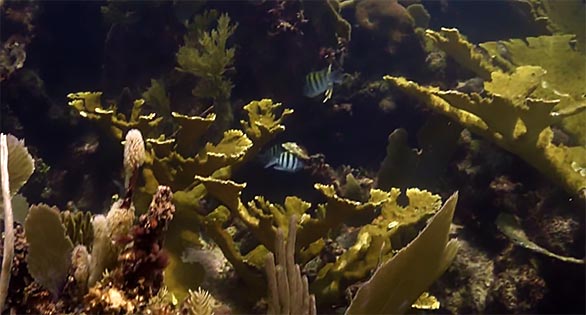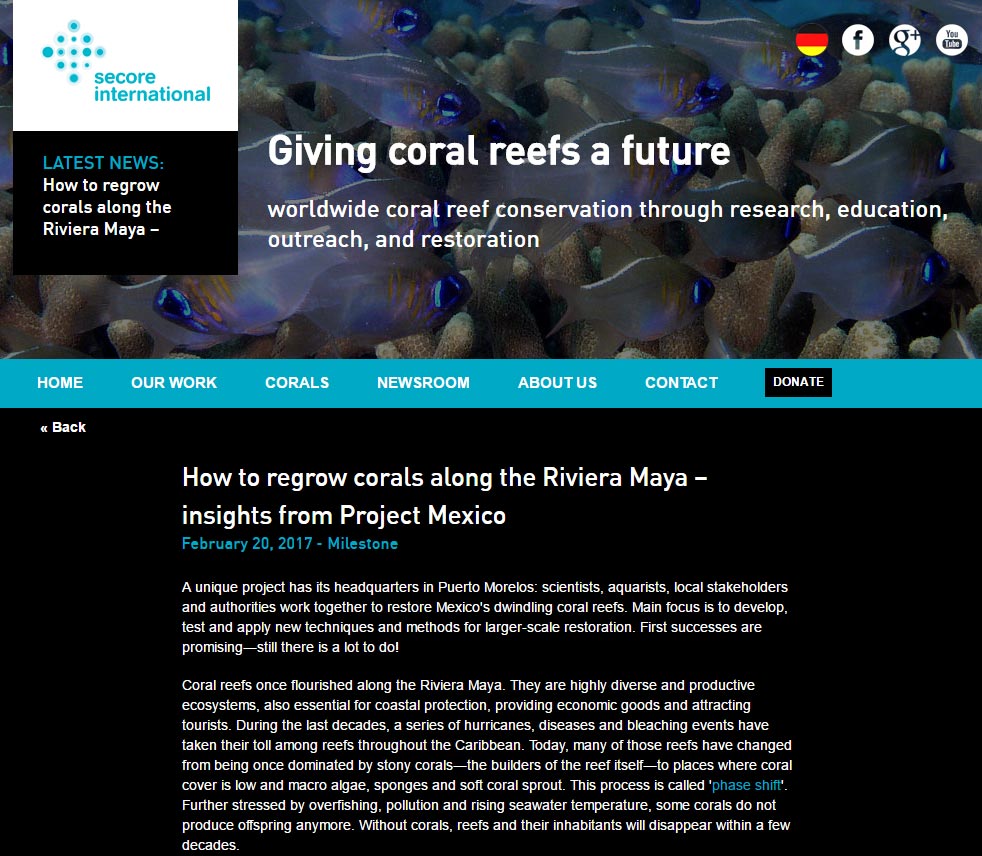
Elkhorn Coral, Acropora palmata, growing on a Mexican reef. Video capture from SECORE / Reef Patrol.
The latest report from SECORE’s reef restoration efforts includes another video from our friends at Reef Patrol. SECORE (an acronym from SExual COral REproduction) is an international research intiative looking into methods of using sexually generated coral eggs, sperm, and larvae to grow replacement corals for reef restoration.
This episode features a video profile of Dr. Anastazia “Ania” Banaszak, a research professor at Unidad Academica de Sistemas Arrecifales (“the Reef Systems Academic Unit,” UASA), a satellite campus of UNAM (the Universidad Nacional Autonoma de Mexico) in Puerto Morelos, Mexico.
The report offers insight into the aims of SECORE’s Project Mexico. “A unique project has its headquarters in Puerto Morelos: scientists, aquarists, local stakeholders, and authorities work together to restore Mexico’s dwindling coral reefs. Main focus is to develop, test, and apply new techniques and methods for larger-scale restoration. First successes are promising―still there is a lot to do!”
Watch as Dr. Banaszak’s shares the challenges facing Mexico’s coral reefs, and read the full SECORE report (link below):
Read more about SECORE’s work in the latest in-depth report, How to regrow corals along the Riviera Maya – insights from Project Mexico.





